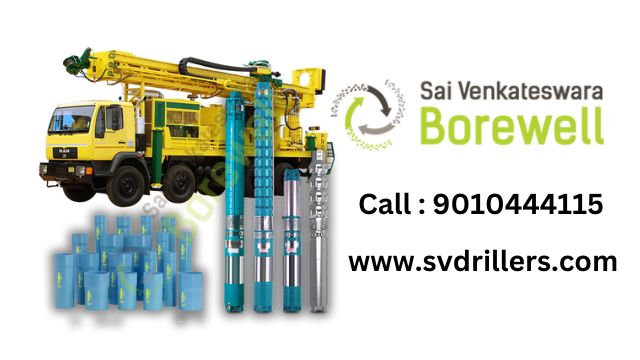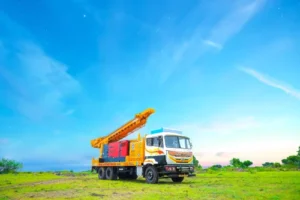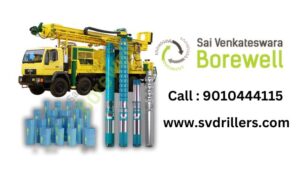Introduction: The Key to Sustainable Farming Lies in Efficient Irrigation
Farming is the backbone of our economy, but inconsistent rainfall and depleting groundwater levels pose severe challenges. Without a reliable water supply, crops suffer, leading to reduced yields and financial setbacks. This is where agriculture borewell systems come into play—offering a sustainable irrigation solution that ensures year-round water accessibility.
Whether you’re a small-scale farmer or manage large agricultural land, optimizing your irrigation setup with a professionally installed agriculture borewell can drastically improve productivity. In this guide, we’ll explore how agriculture borewell solutions increase crop yield, reduce water wastage, and enhance farm profitability.
What is an Agriculture Borewell?
An agriculture borewell is a deep, narrow well drilled into the ground to extract groundwater efficiently. Unlike traditional dug wells, borewells tap into deeper aquifers, ensuring a consistent water supply even during dry spells.
Key Components of an Agriculture Borewell System
- Borewell Casing: Prevents collapse and contamination.
- Submersible Pump: Ensures efficient water lifting.
- Pipes & Filters: Transport and purify water before irrigation.
- Drip/Sprinkler Integration: Maximizes water efficiency.
Learn more about borewell installation in Hyderabad for optimal farming results.
How Agriculture Borewell Solutions Boost Crop Yield
1. Ensures Consistent Water Supply
Unlike rain-fed farming, agriculture borewells provide uninterrupted irrigation, preventing droughts from affecting crops. Farmers who switch to borewell irrigation report 30-50% higher yields compared to uncertain rainfall-dependent methods.
2. Reduces Water Wastage
Modern agriculture borewell systems integrate drip irrigation and automated sprinklers, minimizing water loss through evaporation and runoff. Studies show drip irrigation increases efficiency by 90%.
3. Improves Soil Nutrient Retention
By supplying precise water quantities, borewells prevent soil erosion and nutrient leaching, ensuring crops absorb maximum nourishment.
Discover the best borewell drilling techniques for your farmland.
Steps to Choose the Right Agriculture Borewell Solution
1. Conduct a Hydrogeological Survey
Identify water availability depth and quality before drilling.
2. Select the Right Drilling Method
Choose between rotary drilling, percussion drilling, or auger drilling based on soil type.
3. Optimize Pump & Motor Efficiency
Invest in an energy-efficient submersible pump to reduce operational costs.
4. Integrate Smart Irrigation Systems
Pair your agriculture borewell with automated irrigation for precision farming.
For customized solutions, check our borewell maintenance services.
Advanced Borewell Technologies for Modern Farming
1. Solar-Powered Borewell Pumps
Solar-powered systems reduce electricity dependency, cutting operational costs by up to 60%.
2. IoT-Based Borewell Monitoring
Smart sensors track water levels, pump status, and usage patterns via mobile apps.
3. Rainwater Harvesting Integration
Coupling borewells with rainwater harvesting maximizes groundwater recharge.
Learn more about sustainable farming solutions.
Common Challenges & Their Solutions
1. Declining Groundwater Levels
Fix: Install recharge pits around borewells.
2. Borewell Drying Up
Fix: Opt for deeper drilling or hydro-fracturing.
3. Water Quality Issues
Fix: Use reverse osmosis (RO) filters where necessary.
Explore borewell refurbishment techniques to revive dried borewells.
Case Study: How a Farmer in Andhra Pradesh Doubled His Yield
Problem:
Mr. Reddy relied on rainfall, leading to unpredictable harvests.
Solution:
- Installed a 200-feet agriculture borewell
- Integrated drip irrigation
Result:
- Crop yield doubled
- Reduced water usage by 40%
Read more farmer success stories.
FAQ Section: Answers to Common Borewell Questions
1. What is the average cost of an agriculture borewell?
- Costs range between ₹50,000 to ₹2,00,000, depending on depth and pump selection.
2. How deep should an agriculture borewell be?
- Typically 100–500 feet, but depth varies based on water table availability.
3. Can borewells run dry?
- Yes, but proper maintenance and hydro-fracturing can restore flow.
4. Which crops benefit most from borewell irrigation?
- Paddy, sugarcane, cotton, and horticulture crops thrive with controlled irrigation.
5. How often should a borewell be serviced?
- Annual check-ups ensure longevity and efficiency.
Conclusion: Secure Your Farm’s Future with Efficient Borewell Solutions
A well-planned agriculture borewell is a farmer’s strongest ally against water scarcity. By adopting modern drilling techniques, smart irrigation, and eco-friendly pumps, you can maximize crop yield while conserving water.
Ready to transform your farm’s irrigation system? Contact SV Drillers today for expert borewell installation and maintenance!
CSV Keyword & Link Reference
Agriculture borewell, https://svdrillers.com/agriculture-borewell
Borewell installation in Hyderabad, https://svdrillers.com/borewell-installation-in-hyderabad
Borewell drilling techniques, https://svdrillers.com/borewell-drilling-techniques
Borewell maintenance services, https://svdrillers.com/borewell-maintenance-services
Sustainable farming solutions, https://svdrillers.com/sustainable-farming-solutions
Borewell refurbishment techniques, https://svdrillers.com/borewell-refurbishment-techniques
Farmer success stories, https://svdrillers.com/farmer-success-stories
Contact us, https://svdrillers.com/contact-us



